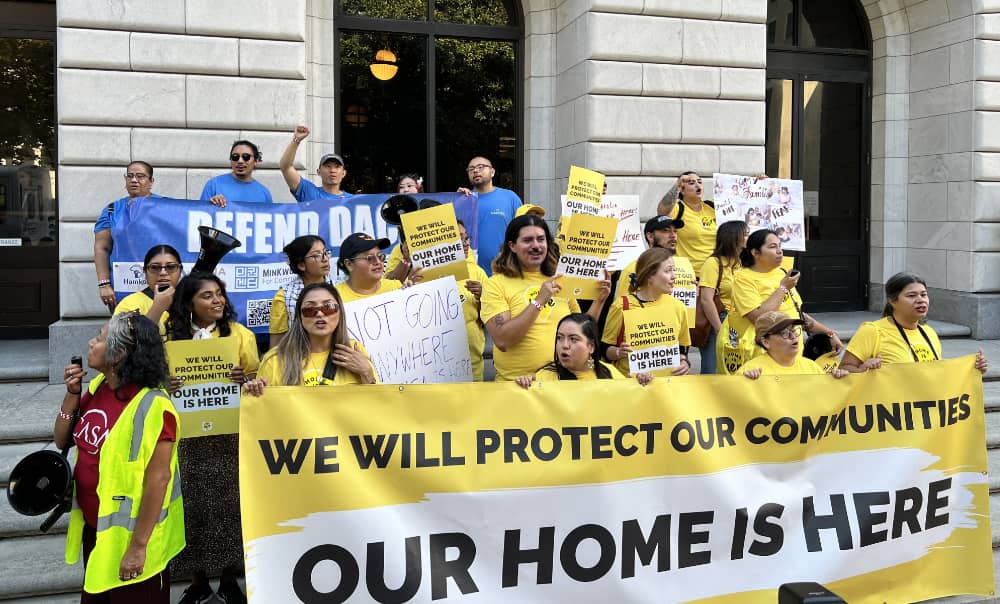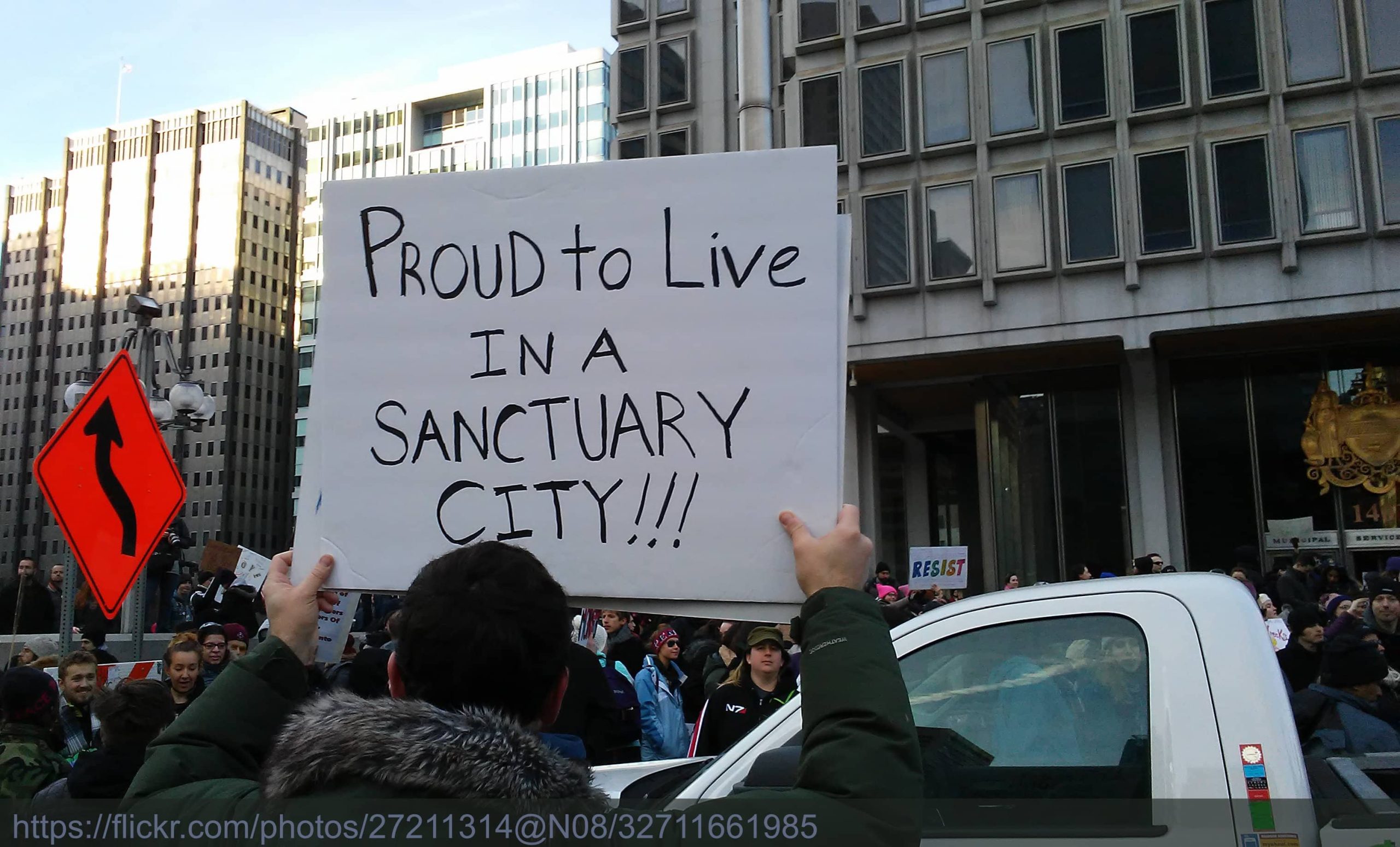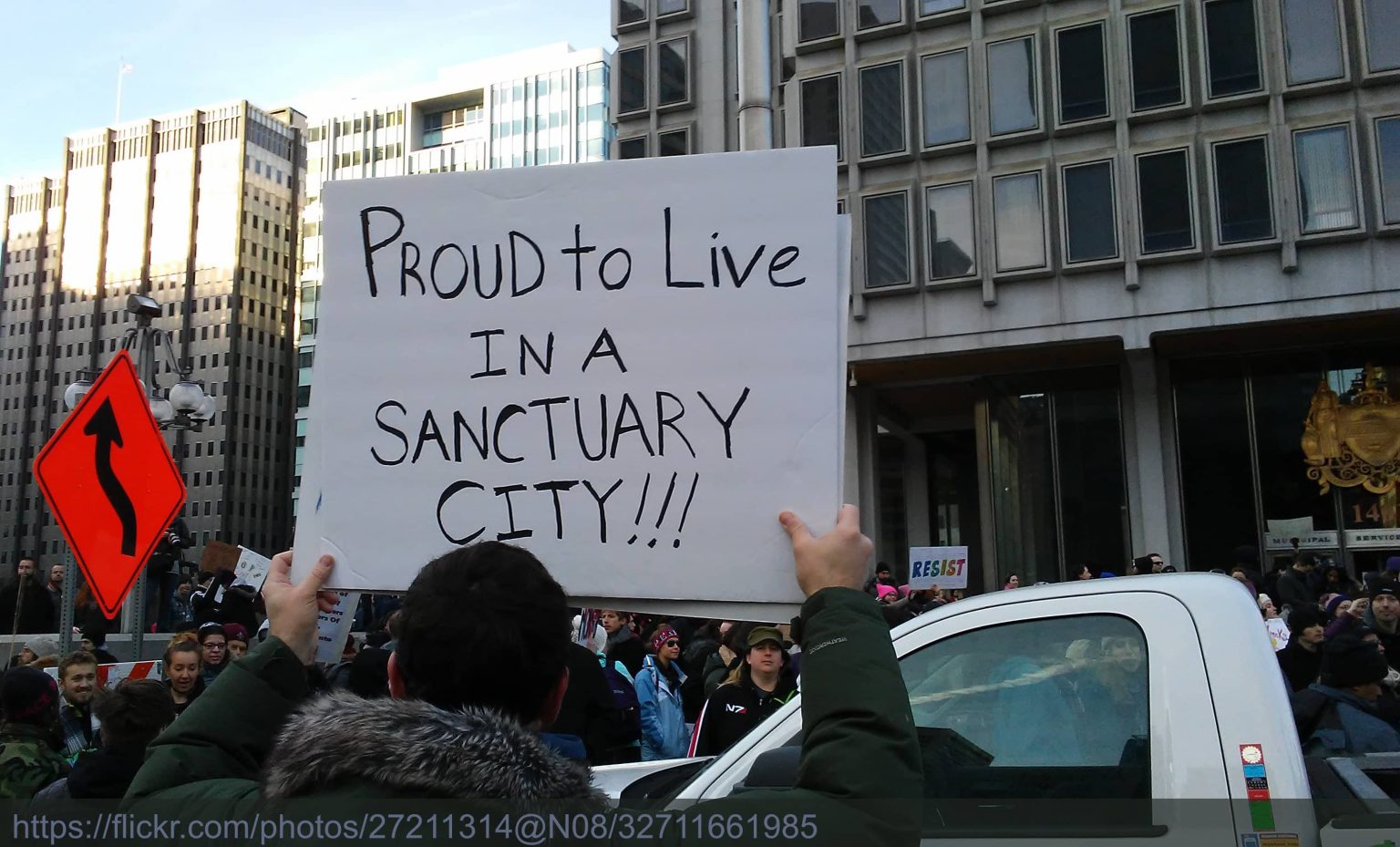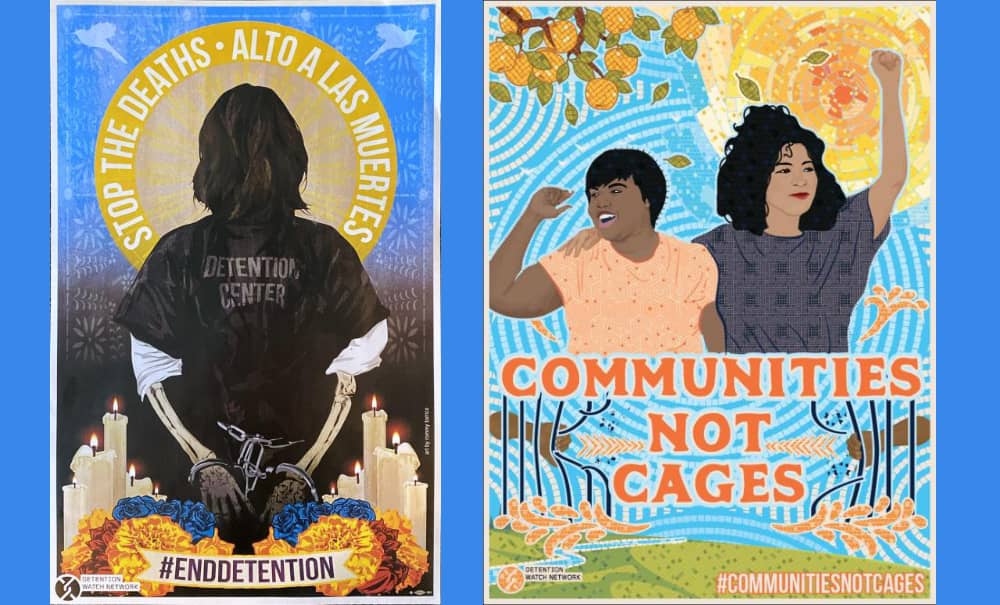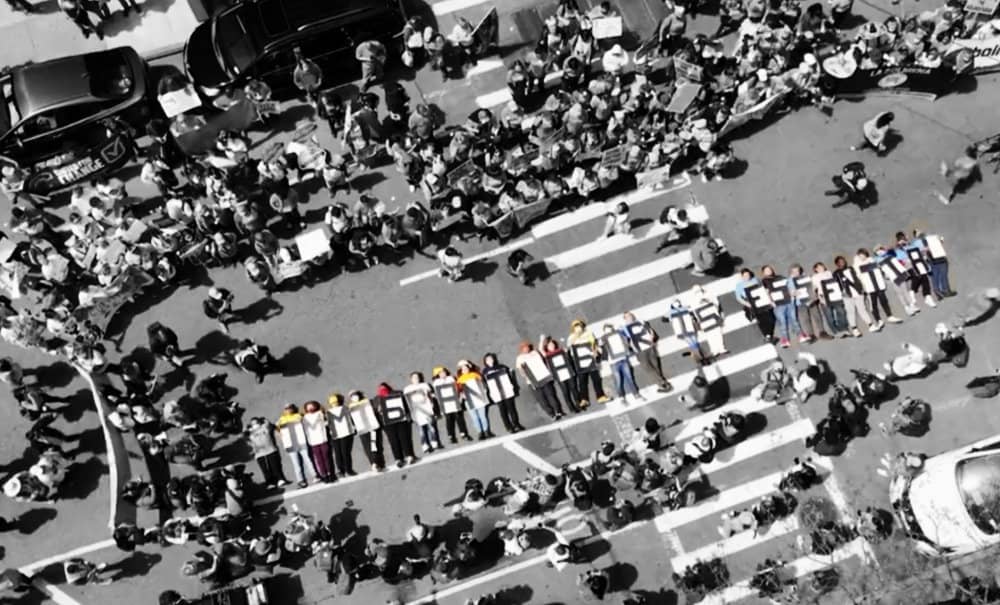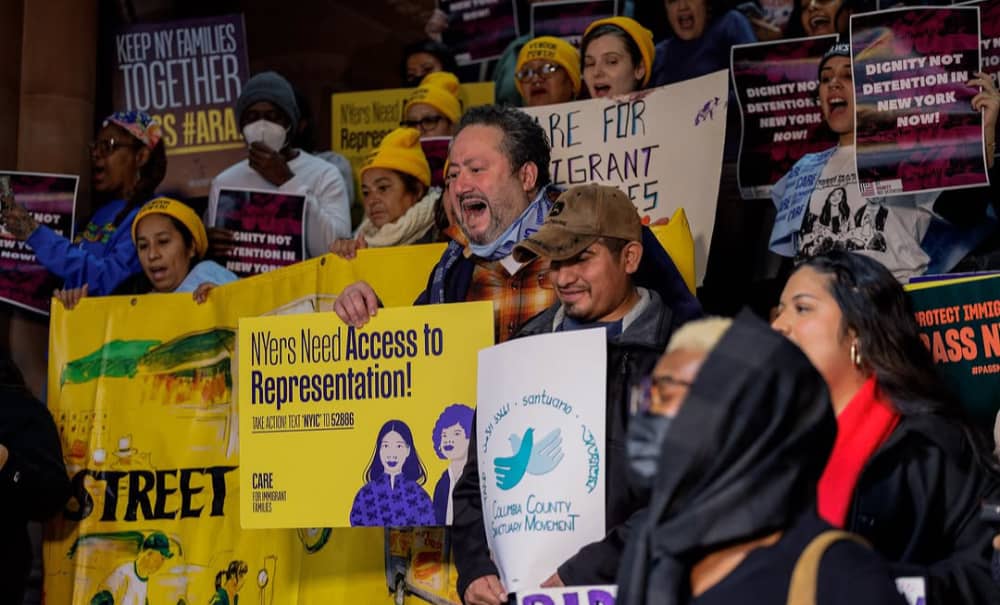
Dear friends,
‘Happy New Year. You’re Deported’ was published by The Nation at the end of the year…in 2015…during the second term of the Obama presidency. Horrific, unacceptable, and unconscionable were key words the article used to describe Homeland Security’s plan to begin raids to deport families. Our first article for this new year 2025 looks at the ongoing state-sanctioned deportation threats to immigrant families and communities which promise to be significantly more aggressive than before. Just like a decade ago, our New York immigrant justice organizations today stand against the inhumanity of these policies. Even as our Mayor and Governor both talk about walking back our sanctuary policies and allowing more cooperation with ICE agents, hundreds of people rallied this past week at the state capitol in Albany demanding expanded legal protections for immigrant New Yorkers.
Government intimidation will not stop the political, social, and community struggles of immigrant-led organizations and justice campaigns. We will, in fact, see community support strengthened this year when Make the Road NY holds a February ribbon-cutting ceremony for its new landmark center in Corona. Our second article spotlights Make the Road’s Deportation Defense Manual and practical guidance for community safety in 2025.
Newsletter highlights:
- A look at deportation threats–and protections–in NYC
- Make the Road NY’s blueprint for deportation defense
1. Cruel Futures—Deportation @NewYork
“By pledging to carry out the largest mass deportation in history, Trump isn’t just targeting immigrant communities, he’s attacking the very fabric of the country … Trump is creating a future where millions of families will live in constant fear of being torn apart, and where entire communities and economic sectors will be destabilized.” —Murad Awawdeh, director, NY Immigration Coalition (12/8/24)
The destabilization promised by Trump and his anti-immigrant minions holds a special threat to New York State, where 4.5 million immigrant residents are at risk of having families, lives, and communities overturned by a mass deportation agenda. New York City is home to an estimated 412,000 of the state’s 672,000+ undocumented people, all of whom stand in the crosshairs of an incoming administration that aims for cruelty and racist scapegoating as a livestream political bloodsport.
Nearly half of NYC’s small businesses are run by immigrants, including undocumented owners (an estimated 60,500 undocumented entrepreneurs live in NY state). Close to 310,000 undocumented workers compose 7% of the city’s labor force. Undocumented workers in New York State pay about $3 billion in state and local taxes. Many immigrant households in our neighborhood are ‘mixed status’ with members living together who have both legal and unprotected immigration status—including over 351,000 citizen children statewide who live with an undocumented family member. Trump has announced he wants to make even more people ‘undocumented’ by stripping away time-limited legal protections like Temporary Protective Status (TPS), DACA, and humanitarian parole, which would expose thousands more people in Central Queens to deportation threats.
Assessments abound regarding what Trump 2.0 can really do, what they will really do, and how quickly. In recent US history, the vast majority of removals and detentions took place at the US-Mexico border. Deporting undocumented immigrants from New York City would require interior arrests and detentions, actions limited, in theory, by complex legal procedures and choked by overwhelmed immigration courts. But ‘expedited removal’ protocols—which Trump tried to ramp up during his first administration—would allow federal officials to remove anyone who cannot prove they are in the US lawfully, or that they have resided physically in the country for two years or more.
New York City is not without some protections, for now, against deportation frenzy. One of over 170 US cities that has established sanctuary policies, NYC since 1989 has created legal safe zones for immigrants threatened by federal overreach. In 2014 and 2018 under Mayor de Blasio, sanctuary laws were strengthened to preclude local cooperation with ICE’s ‘detainer requests’ (with exceptions for people convicted of serious crimes), and to mandate advance review by senior city officials of any request for help from federal immigration agents that might lead to deportation. In fiscal year 2022-23, the NYPD granted exactly zero of ICE’s requests to hold someone in custody for them. But attempts at the state level to expand immigrant protections have stalled, including the ambitious New York For All Act which has never gotten out of committee. And Mayor Adams has recently threatened to change the city’s existing sanctuary laws to facilitate cooperation with ICE and federal deportation.
As we speak, the city is also closing down the vast tent city at Floyd Bennett Field in southern Brooklyn, built to serve as a family shelter for recent migrants. The closure is due in part to a steady decline in the number of migrants arriving in NYC and being housed in city shelters, a 17% drop from 69,000 migrants in January 2024 to 57,400 in December. Local immigrant justice groups and the mutual aid group Floyd Bennett Field Neighbors also fought for the closure just before Trump’s inauguration: the tent shelter was built on federal land, and advocates feared the new administration could repurpose the shelter as an immigrant detention center.
Finally, the vulnerability of thousands of recently-arrived migrants in NYC to mass deportation is mitigated by the fact that the majority of new migrants are asylum seekers. Though referred to as “illegals” by Trump, and often presumed undocumented, many recent migrants are actually at the start of the years-long asylum process. They exist in a legal border zone, constructed precisely to protect asylum seekers from deportation during the proceedings.
Will legal border zones mean anything in the coming years? Will laws be blown up, and emergency states of exception proliferate? That uncertainty triggers everyone’s worst nightmares. As Murad Awawdeh of NY Immigration Coalition says: “We can’t allow this vision of cruelty, exclusion, and fear to become our reality.”
WHAT CAN WE DO?
- Support the New York For All Act which prohibits state and local resources from being used to enact inhumane federal deportation agendas.
- Support the Dignity Not Detention Act which prevents NYS from entering in, or renewing, contracts for immigrant detention centers. Similar bills have passed in NJ, CA, WA, and IL. Sign on with your organization’s support for the bill.
- Support the Access to Representation Act which guarantees the right to counsel for anyone, regardless of income, who comes before a New York immigration court, including in deportation hearings.
2. Preparing for Trump’s Deportation Plans
“I think [Queens], in many ways, ends up being the kind of epicenter for the fights. I think a lot of the work that we’re going to have to do over the next four years, whether it’s deportation defense or education within the community, is going to be centered in our borough.”–Jagpreet Singh, organizer with Desis Rising Up & Moving (DRUM)
In the first weeks of 2025, our undocumented friends and neighbors are dreading the onset of Trump’s deportation plans. Many of the immigrant justice organizations are on high alert. Both DRUM and Make the Road NY say they have been preparing for the incoming presidential administration:
“Throughout this year, we’ve been preparing our community for this. We’ve been preparing basically this entire year. I think we’re in a better spot than we would have been if this was unexpected.” —Jagpreet Singh, organizer with DRUM
“It is a very dark time when New York City, which has always thought of itself as a sanctuary space, that our mayor would even willingly meet with this new border czar. It sets a tone that New York City is not for immigrants, and it puts a target on the back of immigrants.”—Luba Cortes, immigration lead organizer, Make the Road New York
Make the Road NY, with the help of the Immigrant Defense Project, has created one of the most comprehensive preparedness resources: the Deportation Defense Manual. MTRNY’s website also offers current resources and downloadable flyers, including their recent Stay Safe! How to Protect Yourself in a Trump Administration.
The Defense Manual, available in Spanish and English, has three major parts and several useful appendixes. Part 1: Know Your Rights provides details for dealing with ICE at home, on the street, while driving, or at work. The main message from Part 1 is to not open the door unless ICE shows you a judicial warrant (sample on p. 19). Be calm and remain silent. You do not have to say anything or provide any information. (Your 4th and 5th Amendment rights should protect you from incriminating yourself and/or unlawful search and seizure.) You can say “I want to exercise my right to remain silent.” and “I do not consent to a search.” Ask for an interpreter. Ask to talk to an immigration attorney before signing anything. If you see someone being detained, take photos and write down all the information about the encounter. (Appendix D has a form to use.) Call the Immigrant Defense Project help line (212-725-6422). Part I ends with extremely important guidance for how to protect your children by creating a plan now, and Appendix C has a comprehensive family preparedness checklist.
Part 2: Rapid Response to Raids provides information needed to support someone or a family after an ICE raid. What information do you need to have about the detained loved one? How to find a lawyer, and how to visit someone in detention? (pp. 28-31).
Part 3: Deportation Defense lists strategies to organize support for an individual who has been detained. How to organize the community to support a detained person? How to create a fundraising campaign or put pressure on government agencies? (pp. 42-44 and Appendix F).
Finally, Appendix G has multiple copyable flyers with rights information to distribute.
WHAT WE CAN DO?
- Read and circulate the Deportation Defense Manual to friends and neighbors.
In solidarity and with collective care,
Jackson Heights Immigrant Solidarity Network (JHISN)
Follow @JHSolidarity on Facebook and Twitter and share this newsletter with friends, families, neighbors, networks, and colleagues so they can subscribe and receive news from JHISN.
